
The last three weeks have been packed. I tried to get Christmas done and mailed before my trip to Seattle to help my daughter who is pregnant and very ill. But life is life and I live in a four-generation household and… well, I didn’t get it done.
Seattle was wonderful, busy, fun, and tiring all at the same time. I came home with croup. I know, only kids get croup but every few years I join them. I don’t feel ill, but I sound terrible and feel totally worn out, so Wed. and Thurs. I didn’t get much accomplished. But I couldn’t rest on Friday because there was so much to do.
Here’s what I was trying to accomplish on Friday
- Bake three apple pies
- Make another tent kit
- Go to the doctors
- Get my mom to take a bath and trim her hair
- Make 50 pancakes and a pot of green chili
- Create and format a special document
- Get all the rest of Christmas wrapped and shipped
I have a friend who had surgery the day before I flew home from Seattle. When I asked how I could help  her she said that she was having tons of visits and treats but that her family could use some nurturing. Hence one apple pie.
her she said that she was having tons of visits and treats but that her family could use some nurturing. Hence one apple pie.
My neighbor loves apple pie too and I have had her on my gift list for three weeks. I wanted to give her a pie and if you’re going to make one pie you might as well make two right! But if I bake and give away pies, I must make one for my own household or there would be a rebellion. So, three pies.
 Saturday morning our church planned a Christmas breakfast. That’s right, breakfast. I would have opted to take a breakfast casserole, but my husband has a family tradition of Green Chili Pancakes and it’s so unique that he really wanted to share
Saturday morning our church planned a Christmas breakfast. That’s right, breakfast. I would have opted to take a breakfast casserole, but my husband has a family tradition of Green Chili Pancakes and it’s so unique that he really wanted to share  it. The problem is, he doesn’t know how to make it, I do. His grannie taught me. : ) So I needed to make 50 pancakes and then a huge pot of the green chili sauce. It was too much to do Saturday morning, so it had to be done on Friday. This is very delicious by the way. You can print the recipe HERE.
it. The problem is, he doesn’t know how to make it, I do. His grannie taught me. : ) So I needed to make 50 pancakes and then a huge pot of the green chili sauce. It was too much to do Saturday morning, so it had to be done on Friday. This is very delicious by the way. You can print the recipe HERE.
Now all of this wouldn’t have been too bad, but we had a double doctor’s appointment in the afternoon, we had to stop at two stores on the way home to get some items we needed to finish the above projects and that whole thing took three hours.
I was still trying to get my Christmas items packed and shipped but found that I needed one more tent kit. Long story. And I also realized that I needed a formatted document to include with a special framed family genealogy chart we are sending to our children. We are direct descendants of William Brewster of the Mayflower and I wanted to help each family understand who he was, what his family was like, and why they came to America.
Long story. And I also realized that I needed a formatted document to include with a special framed family genealogy chart we are sending to our children. We are direct descendants of William Brewster of the Mayflower and I wanted to help each family understand who he was, what his family was like, and why they came to America.
I was able to create and format the document but never made a dent in the gift wrapping or the tent kit making. I did get mom bathed and her hair trimmed. Big woohoo!
 It’s Saturday morning now. The church breakfast is done. The chili pancakes were a success. Everyone loved the pies which have been eaten and I am heading off to do the tent kit and get the rest of the stuff wrapped and shipped. My house is a disaster and the kitchen cabinets can’t even be seen. I haven’t vacuumed, dusted, or cleaned anything. Laundry is piling up but I did get one load in before the breakfast. Another big woohoo!
It’s Saturday morning now. The church breakfast is done. The chili pancakes were a success. Everyone loved the pies which have been eaten and I am heading off to do the tent kit and get the rest of the stuff wrapped and shipped. My house is a disaster and the kitchen cabinets can’t even be seen. I haven’t vacuumed, dusted, or cleaned anything. Laundry is piling up but I did get one load in before the breakfast. Another big woohoo!
Here’s my point – life can be overwhelming even when we don’t plan for it to be. Sometimes we get stretched out, tasks bunch together and it feels heavy. In those moments, in my past and younger life, I would go to bed feeling like a failure. I would wonder why I couldn’t get more done. Why wasn’t I like so and so who not only gets more done but looks great too and on and on!
Here’s what I don’t do anymore:
- I don’t compare myself to anyone! Really everyone has their hidden disasters!
- I don’t beat myself up because I’m not perfect, slow, behind, didn’t plan better, start sooner, stay well, look put together, etc.
- If I find myself having a hard time managing my thoughts about myself I pray. Find something that works for you!
- I work diligently to refrain from blaming anyone, or anything for my slowness, tiredness, lateness, etc. I don’t blame! Sometimes it is what it is.
Here’s what I do to manage those times when life is just too much:
- I practice remaining calm and if I need to I go to the bathroom and read a few paragraphs and breathe
- I do what I can and I let it be enough
- I remember to do the few things that make me feel cared for (my nightly shower and reading in the bathroom)
- I make an effort to get enough sleep even if it means not getting as much done in a day
- I take time to remain Present – at least once a day. Being Present happens in 5-minute chunks. This takes practice, even for me
- I pray a lot! and I force myself to smile : )
I hope that this holiday season you’ll work on being your own best friend. Say no a bit more. Compare less. Talk nicely to yourself. Remember small moments of self-care. Smile even when you don’t feel like it. Be Present at least once a day with someone you care about. It can take 5 minutes or less!




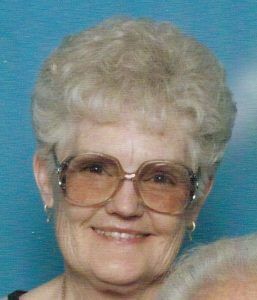


 A Very Bright Chicken!
A Very Bright Chicken! We have chickens, free-range chickens. That means they are never locked in the coop. That has its advantages and disadvantages!
We have chickens, free-range chickens. That means they are never locked in the coop. That has its advantages and disadvantages! she gets in I watched her. Within minutes I saw her scoot under the fence at the corner where it connects to our neighbor’s fence. I shooed her back out. Then I placed a large rock in front of the low spot.
she gets in I watched her. Within minutes I saw her scoot under the fence at the corner where it connects to our neighbor’s fence. I shooed her back out. Then I placed a large rock in front of the low spot. After I blocked her newest entrance I watched her pace from one end of the garden to the other looking for a way in. I could feel her frustration as she paced back and forth trying this and that.
After I blocked her newest entrance I watched her pace from one end of the garden to the other looking for a way in. I could feel her frustration as she paced back and forth trying this and that. she went back to pacing the fence line, then she veered to the left towards the pasture fence. The fence at the back of the garden is also the fence to the back pasture. It’s made of far different wire than our chicken wire garden fence.
she went back to pacing the fence line, then she veered to the left towards the pasture fence. The fence at the back of the garden is also the fence to the back pasture. It’s made of far different wire than our chicken wire garden fence.


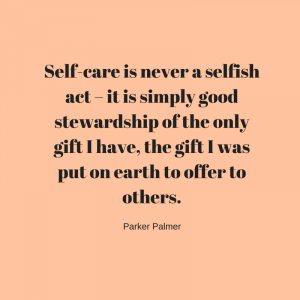 gets cold but every sip tells her mind – you matter and I am taking care of you!
gets cold but every sip tells her mind – you matter and I am taking care of you!
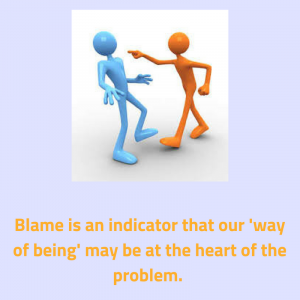 Have you ever noticed that when we’re having trouble with our spouse, neighbor or our children we begin to wonder what we can “do” to make the situation better? Can we devise a new system, have a good old-fashioned “talk it out” session or come up with a consequence/reward and so forth.
Have you ever noticed that when we’re having trouble with our spouse, neighbor or our children we begin to wonder what we can “do” to make the situation better? Can we devise a new system, have a good old-fashioned “talk it out” session or come up with a consequence/reward and so forth. This good, loving mother shared with me that her son is needy, sometimes whiny, and doesn’t respond when asked to do something. He doesn’t like being directed. It’s frankly annoying. The energy between them is not positive and she is short with him.
This good, loving mother shared with me that her son is needy, sometimes whiny, and doesn’t respond when asked to do something. He doesn’t like being directed. It’s frankly annoying. The energy between them is not positive and she is short with him. works PERFECTLY. When she gives him a heads up about a change in the schedule it works PERFECTLY. And as for random touches….well that is making ALL the difference. Not just for her seven-year-old, but for all of her children.
works PERFECTLY. When she gives him a heads up about a change in the schedule it works PERFECTLY. And as for random touches….well that is making ALL the difference. Not just for her seven-year-old, but for all of her children.

 God must have wanted to see how serious I was about the question because I prayed that same prayer every day for three months! Then one night I knew the answer – stop complaining!
God must have wanted to see how serious I was about the question because I prayed that same prayer every day for three months! Then one night I knew the answer – stop complaining! made a serious decision to become a more charitable person, less judgmental. That has been a work in progress too. Here is how they’re connected.
made a serious decision to become a more charitable person, less judgmental. That has been a work in progress too. Here is how they’re connected.



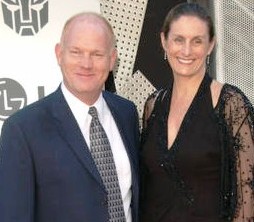

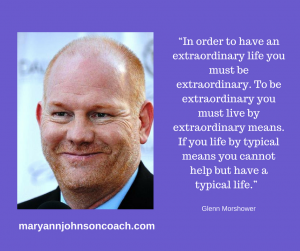 In 2011 I had the extraordinary opportunity to interview Glen Morshower – Agent Aaron Pierce, from the Fox hit “24. I had attended an event he spoke at and I was riveted by his humor, wisdom and pure joy in living. So I plucked up my courage and asked him for an interview that I could share with the mothers and fathers I work with. He said he would be glad to and gave me his phone number. I never called.
In 2011 I had the extraordinary opportunity to interview Glen Morshower – Agent Aaron Pierce, from the Fox hit “24. I had attended an event he spoke at and I was riveted by his humor, wisdom and pure joy in living. So I plucked up my courage and asked him for an interview that I could share with the mothers and fathers I work with. He said he would be glad to and gave me his phone number. I never called.